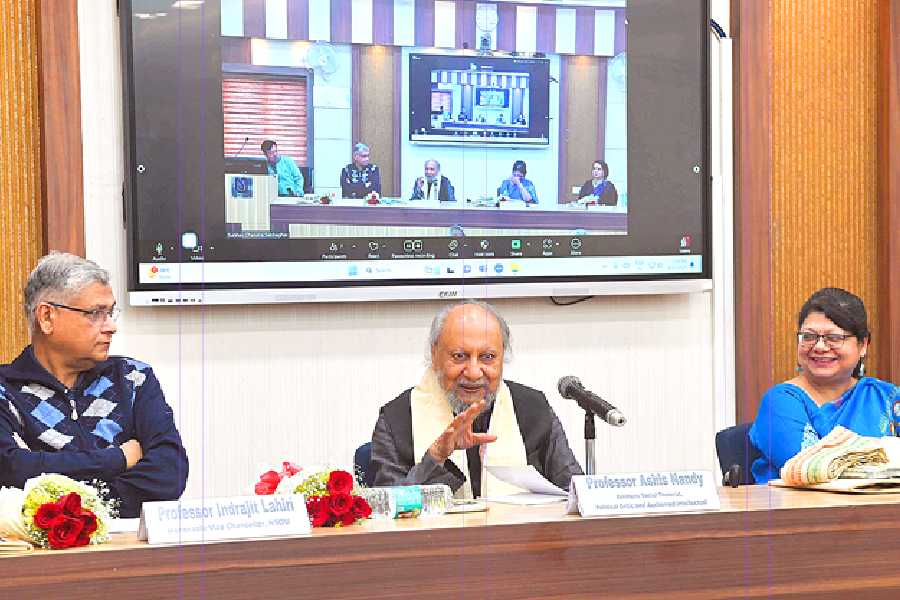Dissent can never be curbed in a diverse country like India where the seeds of dissent have flourished in various forms, social scientist Ashis Nandy said on Friday.
He was speaking on “The past and future of dissent in India” at Netaji Subhas Open University.
Nandy said those who try to curb dissent suffer from narcissism and paranoia and they try to portray that some conspiracy is always being hatched against them.
“Those who try to quash dissent forget that India has witnessed an undercurrent of dissent for years and there will be a constant reflection of that, conscious or unconscious. Therefore dissent can never be curbed in India,” he told Metro after delivering the Netaji Subhas Chandra Bose Memorial Lecture at the university.
The sociologist said that be it the Sepoy Mutiny or the Bhakti Movement, dissent has surfaced in various forms.
“The attempt by the ruling dispensation (at the Centre) to keep the likes of Umar Khalid behind bars or not to release the likes of Stan Swamy who eventually died in prison, reflects an attempt to curb dissent. But... dissent will keep coming back,” he told this newspaper.
“Dissent cannot be suppressed fully in a country like India because of its multiple diversities and multiple languages. India is not a univocal country. Any monolithic structure cannot define India. There have been various forms of dissent. Recently, a good number of books have come out on how to handle tyrants and strongmen, seeking to curb dissent and identify tyrants,” Nandy told the audience at Netaji Subhas Open University, comprising many political and social scientists.
According to Nandy, the principal characteristic of a tyrant or an autocrat is that “they display a strong sense of narcissism”.
He referred to some political leaders’ obsession with clothes and physical appearance.
“The second characteristic of an autocrat is that he is paranoid. He imagines that people are conspiring against him. He turns the clash of ideas into a clash of personalities.”
Nandy in his address explored the historical underpinnings of dissent as a cornerstone of democratic societies and traced its evolution in the Indian context.
He emphasised the vital role of dissent in fostering change and resilience, while also focussing on the challenges it faces in recent times.
Nandy, who served as the director of the Centre for the Study of Developing Societies, Delhi, released a book on the topic of his lecture.
He said both Mahatma Gandhi and Rabindranath Tagore carried the voice
of dissent.
“It is this Rabindranath who in response to the underground sentiments of the people around him and the people, culture and faiths he met during his travels displayed an uncanny ability to imagine and anticipate the emergence of a new kind of liberating figure in colonised India. In a large number of his poems, songs, plays and fiction, characters with Gandhi-like traits emerged as freedom fighters with a distinctive, quasi-Gandhian message of liberation,” Nandy has written in the book.
During the lecture, Nandy mourned the death of his brother, poet-journalist-film producer Pritish Nandy, who passed away on Wednesday.











